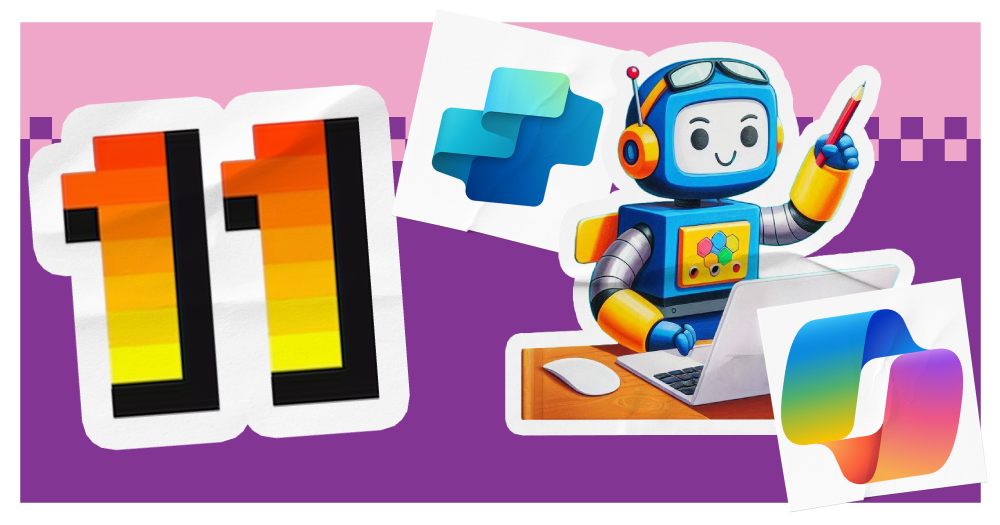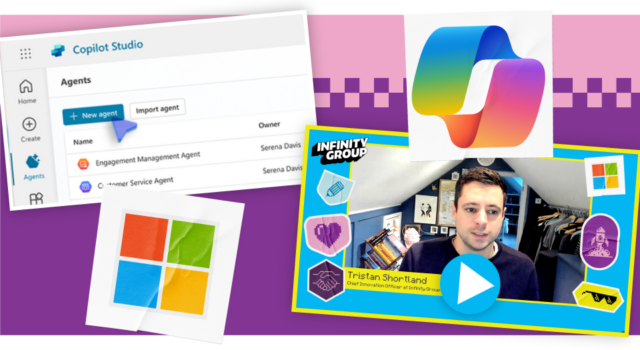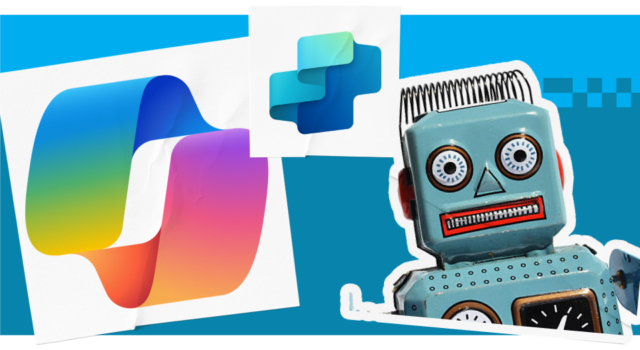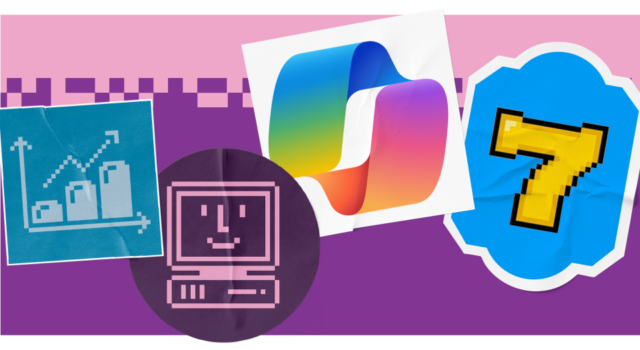Feeling busy at work? If so, you’re not alone. Data shows that over half of employees and businesses leaders feel they are currently expected to do more work than a single person’s job.
The result is limited capacity, high levels of stress and employee burn-out and potential corner cutting in the bid to save time. It also makes it harder to find time for strategic thinking that drives agility, innovation and performance.
AI and automation are solutions to this issue. Both offer significant time saving benefits, allowing you to free capacity and let employees focus on higher value work. By combining AI and automation in the form of AI agents, the rewards are even greater.
Due to this potential, more organisations are embracing agentic AI. 72% of leaders expect AI agents to be fully integrated across their operations, with 21% anticipating this to be within the next 12 months.
If you want to join the fold before you’re left behind, you need to know how you can best utilise agentic AI to get results across your business functions. We’ve put together 11 AI agent examples to show you exactly how they can work for you.
What are AI agents?
Firstly, let’s dive into what AI agents are.
They are software programs designed to perform tasks autonomously or semi-autonomously, using artificial intelligence. Unlike generative AI, which just serves answers based on prompts, they can actually execute tasks.
A great example of an AI agent is a virtual assistant, like Siri or Alexa. You ask it to do something, and it can autonomously complete tasks, like creating a reminder, sending a text or setting an alarm.
There are three ways to use agents, from simple to more advanced:
- Retrieve information, using your data, applying reason and summarising to answer user questions (such as a helpdesk agent)
- Complete tasks, using automation to replace repetitive work (such as a bank reconciliation agent)
- Operate independently, with the ability to plan responses, orchestrate other agents and escalate issues (such as an agent that researches and qualifies leads)
Each of these can be used in different approaches, depending on the agent you build.
11 AI agents examples
We’ve put together 11 AI agent examples if you’re looking for a greater understanding of what AI agents are or how you can use them in your business. Remember, these are by no means an exhaustive list – but they should show you how AI agents can work.
1. Chatbots
Chatbots use natural language processing to understand and respond to user queries. They can be rule-based (following predefined scripts) or AI-driven (using machine learning to improve over time). By incorporating agentic AI, you can autonomously handle customer inquiries, provide information and assist with tasks like booking appointments or troubleshooting issues.
The benefits of AI agent chatbots is that they’re available 24/7, offering support whenever users need and reducing wait times. They’re also consistent and can free capacity within your customer service.
2. Recommendation systems
These systems typically use algorithms like collaborative filtering, content-based filtering or hybrid methods to analyse user behaviour and preferences to suggest products, services and content that users are likely to be interested in based on their past behaviour and preferences. A good example is Netflix’s recommendation process.
By having agentic AI involved, you can personalise experiences through recommendations without manual intervention. This can boost customer engagement and even increase revenue.
3. Fraud detection systems
You can utilise AI agents monitor transactions in real-time to detect and prevent fraudulent activities, based on suspicious patterns. The agent can also be programmed to block suspicious transactions and send alerts.
By using them, you can enhance security by protecting businesses and customers from fraudulent activities. You can also quickly respond to suspicious activities to minimise financial losses.
4. Predictive analytics
You can set up AI agents to autonomously collect data from various sources such as databases, APIs and real-time streams. This ensures a continuous flow of up-to-date information without manual intervention, allowing you to predict future events and trends.
They can also autonomously clean and normalise data, removing inconsistencies and ensuring uniformity, and take actions such as modifying marketing strategies or triggering maintenance alerts.
By utilising AI agents in this way, you can improve decision-making and respond to potential risks well in advance.
5. Inventory management systems
AI agents can utilise sales data, market trends and other factors to optimise stock levels and manage supply chains. This includes automating reordering processes or setting up alerts when stock running low.
By using AI agents like this, you can prevent stockouts, minimise the risk of excess inventory and improve efficiency.
6. HR recruitment tools
You can use AI agents to screen resumes, analyse candidate data and match applicants to job openings based on their qualifications and experience, ready for your recruitment teams to follow up and book interviews.
This saves time across your recruitment processes, while standardising your approach to filling vacancies to reduce biases.
7. Voice recognition systems
AI agents can be set up to transcribe and understand spoken language for customer service or documentation. This makes it easier to get written documents around customer calls or meetings. It’s also ideal for people who prefer to talk rather than type, such as those with accessibility needs.
Alongside improvements in accessibility, this can also speed up manual tasks like transcription and data entry.
8. Dynamic pricing tools
Agentic AI can utilise algorithms to adjust prices based on real-time data, including demand, competition and other market factors. This means automatically updating prices on your website and commerce platforms to optimise sales and profitability.
This helps you to maximise revenue, stay ahead of competitors and offer compelling prices that attract and retain customers.
9. Supply chain optimisation
Agentic AI can analyse data from various sources to optimise supply chain operations, including logistics, inventory management and demand forecasting. Using the data, they can automate actions such as delivery route optimisation to reduce shipping costs and improve delivery times, evaluate suppliers based on past performance and reroute shipments in response to traffic, weather or other disruptions.
This lowers operational costs through optimised processes, while also improving supply chain reliability.
10. Sentiment analysis tools
AI agents can use natural language processing (NLP) to analyse text data from social media, reviews and other sources to determine the sentiment expressed. This enables you to gauge public opinion about your brand, products and services. They can even be set up to alert you when a mention of negative sentiment appears.
This helps you to understand customer feelings better and manage your brand reputation. You can then build proactive marketing strategies to improve sentiment and exceed expectations.
11. Personalised marketing
AI agents can analyse customer data and behaviour to create personalised marketing campaigns. This includes delivering or scheduling target ads, emails and other marketing content, tailored to specific customers.
This enables you to capture customer attention at the right time, driving high conversion rates from your marketing activity and improving customer relationships.
Copilot Agents: making AI agents accessible
Now you know some AI agent examples, you might be wondering how to create them for your business. Luckily, Microsoft are making it easy with Copilot Agents.
Copilot Agents are Microsoft’s take on agentic AI, tailored to specific business use cases. The agents act as automatic bots with AI capabilities, enabling you to alleviate manual work and minimise intervention.
They can be easily built and configured within Copilot Studio, without the need for highly technical skill. Plus, they’re already grounded in your data for smoother processes.
Plus, if you needed even more inspiration to get started, Microsoft have created 26 pre-built Copilot Agents that you can embed in your business:
- Website Q&A: This agent answers common questions from users, by finding content on your website and turning it into answers based on context
- Team Navigator: This enables employees to find the right colleague for their needs or understand where they sit in the organisation’s hierarchy
- IT Helpdesk: This allows employees to quickly create and view support tickets
- Store Operations: This agent serves store procedures and policies for retail workers
- Case Management: This provides 24/7 automated support to customers by creating cases based on their issues and queries
- Safe Travels: This provides answers to common travel questions and related health and safety guidelines
- Inclusivity: This agent gives employees a safe space to ask questions around inclusivity in the workforce
- Sustainability Insights: This offers insights about a company’s sustainability goals and progress
- Weather: This gets the current weather conditions and forecast for planning
- Benefits: This agent serves personalised information on company benefits to employees
- Citizen Services: This enables Public Sector Organisations to assist their citizens with relevant service information
- Financial Insights: This allows financial services professionals get information from organisational financial documents
- Self-Help: The self-help agent empowers customer service staff to get information to resolve issues without manager intervention
- Awards and Recognition: This allows users to easily nominate and recognise employees for their achievements
- Leave Management: This streamlines the leave request process, for easier approvals
- Wellness Check: This agent conducts automated wellness checks to monitor employee morale and check wellbeing
- Sales Qualification Agent: This qualifies leads so sellers can focus on the highest priority opportunities
- Sales Order Agent: This automates the order intake process from entry to confirmation, based on customer interactions
- Supplier Communications Agent: This manages suppliers, such as confirming order delivery to them autonomously
- Finance Reconciliation Agent: This helps teams cleanse data sets to simplify the financial period close process
- Account Reconciliation Agent: This agent automates the matching and clearing of transactions between subledgers and the general ledger
- Time and Expense Agent: This manages time entry, expense tracking and approval workflows
- Customer Intent Agent: This allows self-service by monitoring past and current customer conversations across all channels, mapping issues and storing resolutions
- Customer Knowledge Management Agent: This helps you keep knowledge articles up to date by analysing case notes, transcripts and summaries
- Case Management Agent: This agent completes key tasks throughout the case life cycle
- Scheduling Operations Agent: This enables dispatchers to provide optimised schedules for technicians in real-time
There are also a number of agents designed to support your cyber security practices, working alongside your existing software.
And if none of these pre-built agents work for you, you can create your own from scratch, thanks to Copilot Studio’s easy-to-use interface.
Copilot Agents in real life
Still not sure whether Copilot Agents can drive results in your business? Luckily, organisations have already deployed Copilot Agents – and seen the results. Here are just a few stories, courtesy of Microsoft.
Pets at Home
Pets at Home, the UK’s largest pet care company, has integrated Microsoft Copilot Agents to enhance various aspects of their operations. They developed AI agents to support different business areas, including a notable application for the retail fraud detection team. This AI agent helps investigate suspicious transactions more efficiently, improving the team’s effectiveness.
As a result, they have experienced a cost avoidance of £1 million+, with seven figure annual savings predicted.
Microsoft
Microsoft has tasted their own champagne and implemented Copilot Agents. This has included a technical support agent that supports engineers by empowering businesses and customers to self-serve as much as possible.
Since implementing the agent, they’ve already experienced a 32% increase in self-service and a 20% reduction in missed routing for calls.
Get started with Copilot Agents
If you’re ready to experiment with AI agents, Copilot Studio makes it easy. With a user-friendly platform and endless possibilities, you can easily create agents that align to your business needs and boost automation.
Find out more about Copilot Agents and how to get started in our guide.




